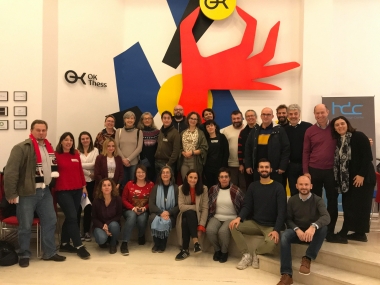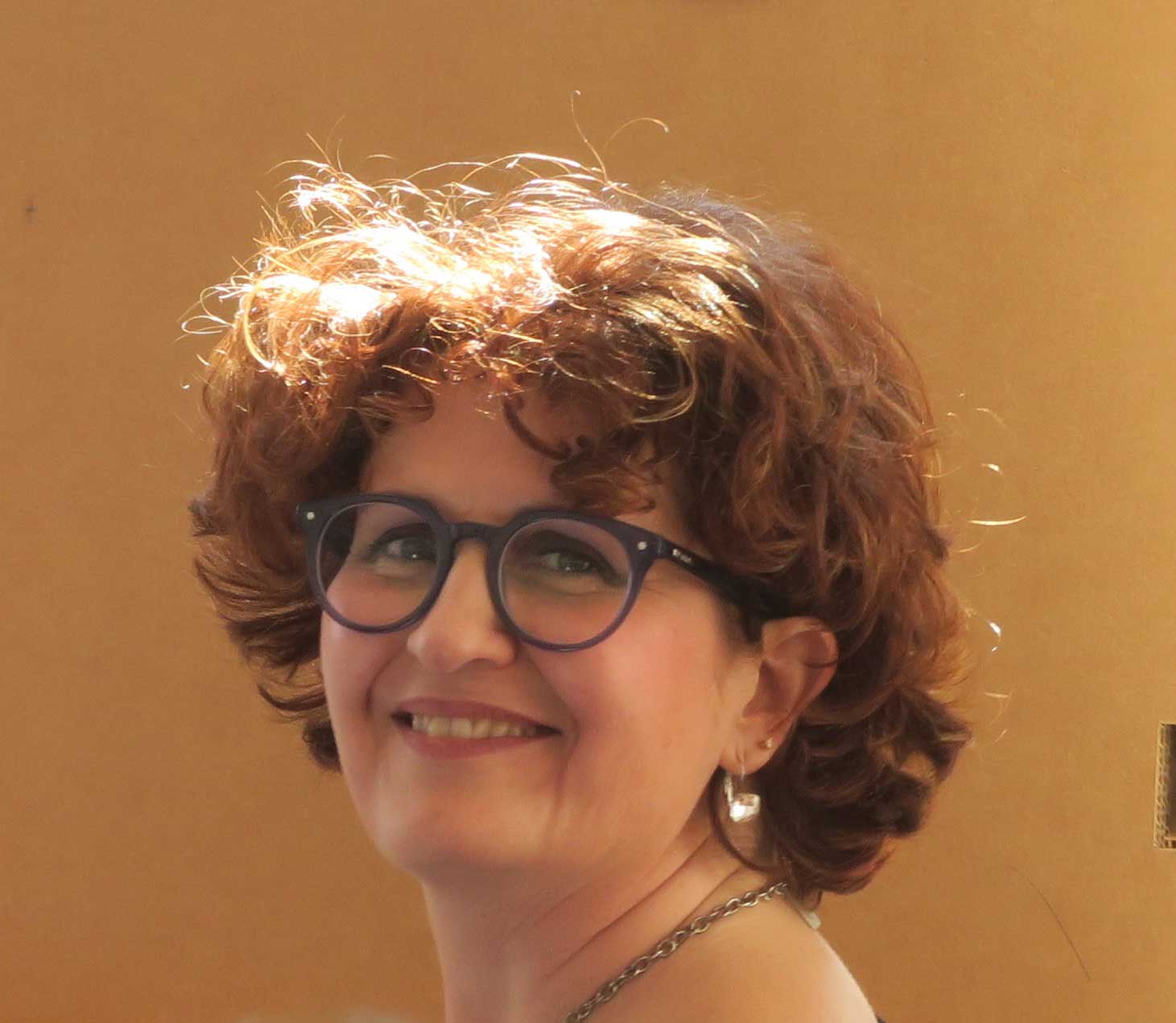Transnational Meeting in Thessaloniki
Edited on
30 January 2020The City Hall of Thessaloniki was the venue, from 3rd to 5th December, for the last Transnational Meeting to be held in 2019. Representatives from partner cities, ULG members and Thessaloniki representatives met in what turned out to be a very intense and productive meeting which involved workshops, study visits, training sessions, a steering committee and a Mid Term Reflection meeting.

The first day focused on the presentation by the Network Expert of the document prepared by each partner city indicating the barriers and difficulties encountered in the transferring of the good practice in their city.
The second day was dedicated to Element 1-Capacity Building, fostering the exchange of experience among partners in consideration of the opportunity for public administrators and gardeners of different countries to work together. Two study visits took place in the morning: the first visit was to Kipos3, a small but very interesting urban site, next to the city’s vineyard. The urban garden is managed in strong cooperation with the Municipality by an informal group of citizens and was voted as the best green space of the city which showcases the potential of such projects in the city. The second study visit was to Perkas, important mostly because of its elements of difficulties. Perkas has been such a successful initiative that grew to such an extent to provoke problems paradoxically because of its success. To share the difficulties of this very large spontaneous garden was very instructive for all the participants and offered the possibility of sharing ideas and considerations among partners. The afternoon was dedicated to the presentation of posters prepared by partner cities to share the exchange of experiences among gardeners and administrators. The projects presented varied from urban gardens already implemented (majority),to future projects and many initiatives with the involvement of schools. Some cases showed the evolution and improvements of initiatives already presented in the previous Transnational Meeting (Loures, September 2019), which represented an unexpected interesting result that gave continuity to the open dialogue, started in the past meetings, between public administrators and gardeners and among gardeners from different cities. The session dedicated to Element 1 concluded with a very interesting and stimulating world café, an opportunity for collaborative dialogue to share knowledge and create opportunities for group actions. Participants had the opportunity to list, in their own city’s experience, what had been done and what will have to be done, giving them the opportunity to summarize the implemented actions and focus on the issues to be faced in the future. The exchange itself has been enriched and has grown compared to the past occasions. Barriers and their solutions could be developed more within national contexts.
The third day focused on Element 2-Vocational Training and Element 3-Governance and was structured in two parallel sessions. The Gardeniser training session analyzed in detail the role of the Gardeniser not only as a facilitator in the management of an urban garden but also his/hers importance in the research of all aspects that are related to urban gardening in terms of social and health benefits for human beings. ULG members, gardeners and representatives from all partner cities participated in the training workshop. The session dedicated to Element 3-Governance produced important results and suggestions for the improvement of the regulations. The Thessaloniki regulation was able to benefit greatly from the fruitful discussion and proposed solutions. The discussion also provided a roadmap for the next steps concerning the adoption of the regulation. Crucial is the real engagement of local politicians to facilitate the implementation of the transfer process.
It was clear to the participants that the two sites visited during the first day of the meeting are perfect examples of grounds that can directly benefit from all three Elements of Ru:rban: urban gardens that fall exactly under the proposed management scheme of Rome and therefore can learn plenty from the transfer network.
The Mid Term Reflection with a representative of the JS URBACT and the Steering Committee Meeting took place in a separate venue during the third day.
All participants found the three-day meeting extremely constructive and all sessions interactive and very useful, whilst agreeing on the need for a greater team work within their municipalities and between citizens and the public administration. Great steps ahead have been done so far by each partner and great is the will to accomplish more in future.
 Submitted by Patricia Hernandez on
Submitted by Patricia Hernandez on
